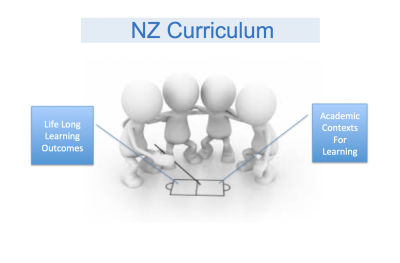
Improving learning means improving teaching - how can you use the data you gather for a teaching inquiry to improve teaching? After all, even though you may have a lot of teaching going on in your school, education is about learning and if there is no learning going on then there is no education.
Over the past two months I’ve begun my workshops with schools by asking three questions.
1: What improves learning?
Everyone has a different list - principals, AP/DPs, teachers.
For example a group of first time principals said: relationships, feedback - feedforward, teachers teaching better, knowing the child, children talking, relevance, student-driven, curriculum personal to the community.
On the other hand a group of AP/DPs had this list: relevance, ownership, engagement, relationships, scaffolding, questioning, culturally responsive, resilience, challenge, critical thinking, wellbeing, risk-taking, purpose, collaboration.
2: What evidence, monitoring, or tracking do you have that these things are being deliberately developed or understood by the teachers in your school?
This question produced discussion and debate with the groups which usually began with, “Good point - I don’t think we do”, or ‘those things are really hard to measure”, or “we’d have to do a lot of work to get our teachers’ heads around that “. But there was a collective ‘aha’ moment where participants realised that if the list they had made themselves was what improves learning, it could be valuable to plan a teacher inquiry that would examine teachers’ assumptions and perceptions about improving learning.
3: How could you use your data to begin conversations with teachers about ‘how’ they are teaching rather than only dealing with ‘what’ the data says?
This question took us straight to the NZ curriculum(NZC), the game of two halves, as schools started examining their purpose for the data they had gathered.
Many are still only gathering data to measure progress in the back half of the NZC- subject-based data. The question surfaced around how you could use that data to start conversations about the front half - the key competencies and effective pedagogy.
How about these questions:
How did we get this data? i.e. a critical review of what kind of teaching and learning took place
Who did the reviewed teaching and learning work for and who didn’t it work for?
What do we know about that cohort of learners and how they learn?
What improves learning? What outcomes do we value in this school - make your own list.
What things on your list make the most sense to focus an inquiry on, given the knowledge you already have about how that cohort of students learn?
How equipped are our teachers and our leadership team to undertake a focused inquiry into how our students learn as opposed to what they learn?
For external help and support in this area please call our Education Adviser Cathie Johnson PH: 04) 802 1386 or email: educationadviser@nzcer.org.nz





Add new comment